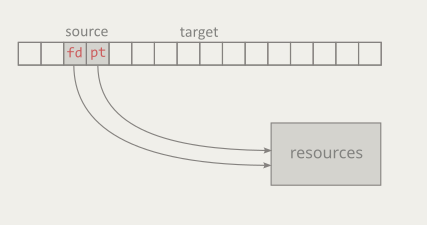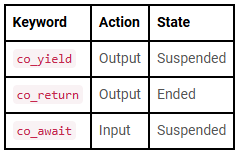Coroutines – A Deep Dive -- Quasar Chunawala
 Coroutines are powerful but require some boilerplate code. Quasar Chunawala explains what you need to implement to get coroutines working.
Coroutines are powerful but require some boilerplate code. Quasar Chunawala explains what you need to implement to get coroutines working.
Coroutines – A Deep Dive
by Quasar Chunawala
From the article:
Following on from the introduction in the editorial, let’s understand the basic mechanics needed to code up a simple coroutine, and I’ll show you how to yield from the coroutine and await results.
The simplest coroutine
The following code is the simplest implementation of a coroutine:
#include <coroutine> void coro_func(){ co_return; } int main(){ coro_func(); }Our first coroutine will just return nothing. It will not do anything else. Sadly, the preceding code is too simple for a functional coroutine and it will not compile. When compiling with gcc 15.2, we get the error shown in Figure 1.
Looking at C++ reference, we see that the return type of a coroutine must define a type named
<source>: In function 'void coro_func()': <source>:4:5: error: unable to find the promise type for this coroutine 4 | co_return; | ^~~~~~~~~promise_type. Why do we need a promise? Thepromise_typeis the second important piece in the coroutine mechanism. We can draw an analogy from futures and promises which are essential blocks for achieving asynchronous programming in C++. The future is the thing, that the function that does the asynchronous computation, hands out back to the caller, that the caller can use to retrieve the result by invoking theget()member function. The future has the role of the return object.

 Value semantics is a way of structuring programs around what values mean, not where objects live, and C++ is explicitly designed to support this model. In a value-semantic design, objects are merely vehicles for communicating state, while identity, address, and physical representation are intentionally irrelevant.
Value semantics is a way of structuring programs around what values mean, not where objects live, and C++ is explicitly designed to support this model. In a value-semantic design, objects are merely vehicles for communicating state, while identity, address, and physical representation are intentionally irrelevant. In today's post, I like to touch on a controversial topic: singletons. While I think it is best to have a codebase without singletons, the real-world shows me that singletons are often part of codebases.
In today's post, I like to touch on a controversial topic: singletons. While I think it is best to have a codebase without singletons, the real-world shows me that singletons are often part of codebases.
 Conferences are never just about the talks — they’re about time, travel, tradeoffs, and the people you meet along the way. After a year of attending several C++ events across formats and cities, this post is a personal look at how different conferences balance technical depth, community, and the experience of being there.
Conferences are never just about the talks — they’re about time, travel, tradeoffs, and the people you meet along the way. After a year of attending several C++ events across formats and cities, this post is a personal look at how different conferences balance technical depth, community, and the experience of being there. C++20 introduced coroutines. Quasar Chunawala, our guest editor for this edition, gives an overview.
C++20 introduced coroutines. Quasar Chunawala, our guest editor for this edition, gives an overview.